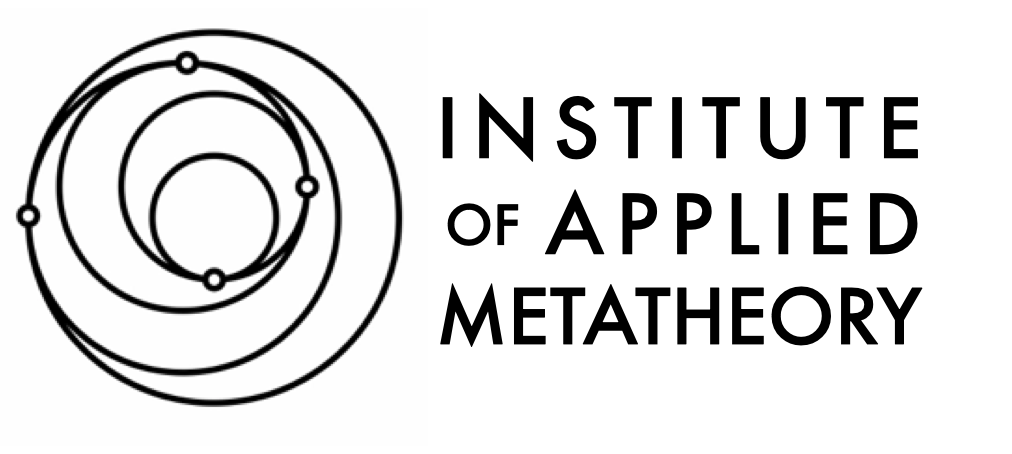
Institute of Applied Metatheory
Applying Big Pictures to Big Problems

Institute of Applied Metatheory
Applying Big Pictures to Big Problems

Despite decades of theoretical and anecdotal work describing the evolution of human worldviews, there remains no robust, population-level empirical mapping of developmental structures such as traditional (amber), modern (orange), postmodern (green), or integral (teal). This absence leaves claims about global societal development speculative and prevents the identification of emerging integrative communities that could serve as catalysts for large-scale transformation. The WSI proposes a groundbreaking initiative to address this gap through a dual approach: (1) deep statistical reanalysis of existing datasets, especially the World Values Survey, to detect latent developmental patterns and potential evidence of integrative perspectives, and (2) the design and validation of a next-generation Integrative Worldview Survey capable of efficiently identifying individuals and communities operating from a developmental-integrative (teal) stance.
The initiative will also integrate faith development research through newly administered Faith Development Interviews scored via the Lectical Assessment System, correlating these results with both WVS and IWS data. This cross-instrument calibration will establish unprecedented links between cognitive-developmental, worldview, and meaning-making measures. By adding a new “Metamodernization” vector to Inglehart’s well-known Modernization and Postmodernization framework, we will create a unidimensional metric capable of tracking societal development across traditional, modern, postmodern, and integrative phases. This empirical foundation will support both scholarly advances in Scientific Worldview Studies and the strategic building of networks within the teal-arising space to address the planetary metacrisis.
Popular models of worldview development—from Spiral Dynamics to integral theory—are rich in descriptive power but largely speculative when applied to entire populations. The absence of reliable, large-scale empirical data means we cannot confirm whether observed cultural trends reflect actual shifts in developmental structures or merely localized phenomena. Without this foundation, the field lacks both credibility in academic discourse and practical tools for identifying where developmental leverage points exist globally.
This data scarcity also hampers efforts to locate and connect integrative (teal) communities that could serve as hubs of systemic transformation. Existing global surveys such as the WVS offer an untapped goldmine of data, but they have never been systematically analyzed through a developmental lens to identify worldview profiles or detect higher-order perspectives. Without such analysis, the potential presence of teal-level thinking in the global population remains invisible to both researchers and practitioners.
This initiative begins with a simple but powerful premise: to guide humanity through the metacrisis, we must first see clearly where we stand developmentally as a species. By systematically mapping the distribution of worldviews at scale, we can transform speculative narratives into empirically grounded insights. Our approach unites three cutting-edge strands of research—statistical reanalysis of the WVS, the creation of a validated Integrative Worldview Survey, and the correlation of these findings with advanced faith development measures—to create a multi-dimensional developmental map of global consciousness.
By introducing a “Metamodernization” vector alongside Inglehart’s Modernization and Postmodernization indices, we will establish a third, empirically detectable axis of societal development. This will not only advance the field of Scientific Worldview Studies but also produce practical tools for identifying integrative communities, shaping targeted interventions, and informing global-scale strategies for cultural transformation.
Without accurate, population-level data on developmental worldviews, efforts to address the metacrisis risk being strategically blind—unable to target the communities most capable of catalyzing systemic change. The absence of this empirical foundation leaves integrative theory vulnerable to charges of idealism or pseudoscience, undermining its credibility and influence in academic and policy spheres.
If successful, this initiative will change that reality. We will, for the first time, possess a clear, evidence-based picture of where humanity stands in its developmental trajectory, where integrative potentials are emerging, and how they correlate with meaning-making capacities. These insights will empower the Institute of Applied Metatheory—and the broader integrative movement—to strategically build the networks, institutions, and collaborations necessary for humanity to navigate the 21st century’s converging crises. The opportunity is historic: to give the integrative worldview both the legitimacy and the leverage it needs to make a decisive impact on the future of civilization.